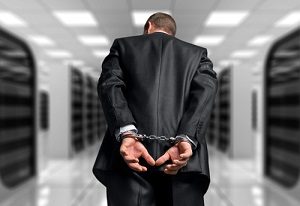COVID Frauds of the Week: First Charges for Fraud on the PPP

As the COVID-19 crisis continues, so too do the reports of brazen fraud against the vulnerable and the government programs designed to help them. Like last week, here in our new feature we will focus on some noteworthy trends in government enforcement in this unfortunate new area of fraud.
Fraud on Government Spending
Notably, we have seen the first of what will undoubtedly be many government enforcement actions targeting fraud on the government programs that have been rushed out to provide assistance to people and businesses suffering in the current environment. The first individuals have been charged with alleged fraud in connection with the Paycheck Protection Program (PPP) created by the Coronavirus Aid, Relief, and Economic Security (CARES) Act.
In Rhode Island, two individuals were charged by the U.S. Attorney with conspiring to commit fraud by allegedly filing out loan applications for over $500,000 in forgivable loans under the PPP. That program provides federally guaranteed loans of up to $10 million for qualifying entities that meet certain requirements. Under the program, employers who use the funds for approved payroll and overhead expenses and maintain their current workforce and wages over the next few months are eligible for loan principal forgiveness.
Of course, you actually have to have a workforce to pay, and a business to keep afloat, to be eligible for the loans. But that did not stop the two Rhode Island men, who allegedly used a combination of non-existent businesses and businesses they did not own to claim loans from the program. All told, the men allegedly claimed dozens of employees at four locations, when they had no employees and no businesses. After a government investigation, they found themselves with criminal charges rather than loans.
As Special Agent in Charge Kristina O’Connell of the IRS-Criminal Investigation unit, which assisted in the investigation, put it, “Defrauding a government program designed to provide financial assistance to small business owners during the Coronavirus pandemic is tantamount to taking money directly out of the pockets of those who need it most.”
Whistleblowers will play a key role in pointing enforcement agencies to fraud that is being committed in these new government programs. Under the False Claims Act, any false statements to the government in connection with receiving federal funds may give rise to liability – and incentive awards to the whistleblower who came forward with information about the fraud. For the PPP, both the initial application for loans and later certifications made when requesting loan forgiveness may expose unscrupulous companies to liability.
Fraud on Consumers
This week also featured a bevy of actions shutting down schemes that attempted to prey on citizens’ fears about COVID-19.
First, a New York man was criminally charged for allegedly selling stolen COVID-19 test kits and falsely claiming that he would run tests for the people who bought them. Instead, he allegedly just kept the money and took no action to run the tests; nor did he have the ability to do so.
Second, numerous government actions were taken this week to warn off or shut down companies that are allegedly falsely representing that they have products that are effective against the novel coronavirus, when in fact they are not:
- The Federal Trade Commission announced a second round of letters to marketers it alleged were making unsubstantiated claims that what they sell could help against COVID-19. The FTC issued 45 letters this time, bringing its overall total to nearly 100. The letters generally targeted sellers of various vitamins, herbs, teas, and “therapies” who were representing without evidence that they were effective against COVID-19.
- The Utah U.S. Attorney’s Office shut down an alleged scheme to promote and sell products containing silver as a supposed preventative for COVID-19, when there is no evidence for such statements.
- In Washington, the U.S. Attorney’s Office charged a former naturopath with criminal trafficking of misbranded drugs, after he allegedly claimed that certain substances were effective in killing the novel coronavirus. Allegedly, the substances as manufactured make no such claims, which were added by the naturopath to market them.
Finally, in a continuing theme of profiting off the crisis, some unscrupulous retailers have been dramatically hiking prices on important products. Thankfully, law enforcement has been cracking down, with enforcement actions announced in at least two states (California and Pennsylvania) against stores for price gouging.
If you have information about frauds related to COVID-19, or any other fraud on government programs, contact us.
Read More:
- COVID-19 Fraud and the Role of Whistleblowers
- COVID Frauds of the Week: Misrepresented Mask Inventories and Medicare Fraud
- False Claims Act
- The Paycheck Protection Program is a Big Solution to a Big Problem, but it Needs Big Oversight
- Contact a Whistleblower Attorney
Tagged in: Catch of the Week, COVID-19, FCA Federal, Importance of Whistleblowers, Whistleblower Eligibility, Whistleblower Rewards,